Fecal Parasite Test For Dogs
Fecal Parasite Test For Dogs
Easy collection tools
Free home pick-up
Fast & clear results
Veterinary backed
Actionable results
Already have a kit?
Activate kitactivate. collect. mail. care.
How it works

Activate 01.
Login to your Pet Portal, select a pet, and complete the pre - collection activation questions.

Collect 02.
User-friendly tools allow you to gather a non-invasive sample from your pet, hassle-free.

Mail 03.
All our kits include a free at-home courier pickup & priority shipping to maintain sample quality.

Care 04.
Our diagnostic lab delivers fast results, easily shared with your vet, family, or pet care providers.


Ollie
AGE 5
TAPEWORM
ROUNDWORM
A GOOD BOY!
THE PRECISION OF
Science
Petlio tests for fecal ova & parasites by centrifugation floatation and microscopy. Giardia & Cryptosporidium are tested by lateral flow antigen testing.
WHAT'S INCLUDED?
Everything you need to collect & mail your pet's sample.
Instructions, gloves, collection test tube, test tube labels, biohazard bag, return mailer bag with prepaid postage.
ACCURATE, FAST TESTING THAT YOU CAN COUNT ON
Our diagnostic quality tests follow the highest industry standards to ensure accuracy and reliability.
BACKED BY VETS
All our tests are designed by vets and follow trusted veterinary procedures.
Answers To
frequently Asked questions
What does this look for?
Our tests follow well established veterinary procedures to screen pets for 7 common intestinal parasites: tapeworm, hookworms, roundworms, whipworms, coccidia, giardia, and cryptosporidium.
Our Fecal Specimen Collection Kit screens for ova and parasites using centrifugation and microscopic examination. Giardia and Cryptosporidium are tested using an antigen test.
Why is it important?
Fecal testing screens for intestinal parasites that may be compromising the health and well-being of your pet. Many parasites mask their presence until clinical signs become severe or significant health complications arise. Therefore, without periodic fecal testing, you may never know that your dog or cat has a parasitic infection.
Some parasites can even be transmitted to other pets and humans in your household. Children and people with compromised immune systems are particularly at risk.
Not all intestinal parasites are treated with routine deworming, enforcing the importance of routine screening. Puppies, kittens, outdoor cats, and pets that interact with other pets (ie grooming, boarding facility) are at higher risk of contracting a parasite. These pets should be tested more frequently.
Fecal tests are recommended by veterinarians as an important part of your pet’s routine general wellness testing. These tests also satisfy daycare, grooming, boarding and kennel requirements for fecal testing to keep other pets and humans safe from parasites.
When should I screen?
Virtually all veterinarians encourage testing your pet annually or even twice a year, and up to 4x per year for puppies. Multiple tests are important because sometimes pets may be infected, but the parasites have not yet shed eggs or grown to a noticeable level at the time of testing. Most vets will also ask for you to perform a fecal test if your pet’s feces begin to look abnormal and some daycares, boarding houses and groomers require an annual fecal test before your animal can visit to avoid infecting other pets.
Other than for wellness screening, your veterinarian may recommend a fecal test if they see any of these clinical signs:
-Diarrhea
-Stool accidents
-Blood in stool
-Rice-like worms in feces
-Black or tarry feces
-Mucus-like feces
-Excessive gas
-Lethargy (low energy)
Changes to appetite (increased or decreased)
-Coprophagia (eating feces)
-Weight loss
-Dull coat
-Pot bellied appearance
-Vomiting
-Scooting
-Itching, licking or biting under tail
What is the cost of not acting?
Routine fecal screening can help mitigate:
-Discomfort
-Malnourishment
-Weight loss and decrease in muscle tone
-Dehydration
-Electrolyte Imbalances
-Allergic reactions
-Weakness
-Intestinal disease and damage
-Anemia (not enough healthy red blood cells)
-Intestinal blockages (in severe cases, a large number of worms can form an impaction)
-Eye damage (rare cases)
-Lung or liver damage (rare cases)
-Death (rare cases)
Failing to test proactively can also have a large financial impact!
Parasites can be transmitted to other pets and even humans in your household, specifically hookworms, roundworms and Giardia, which are all zoonotic. Costly veterinary appointments from hospitalization of severe/advanced disease. Some boarding facilities/daycares require a recent fecal test prior to your pet’s visit.














